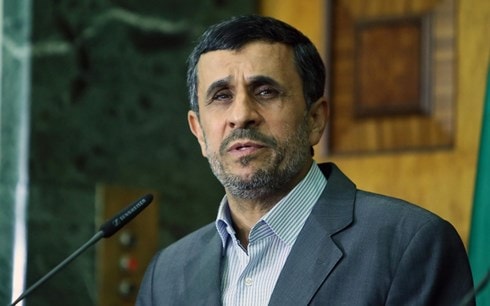Former President Ahmadinejad arrested, Iran situation becomes chaotic
Former Iranian President Mahmoud Ahmadinejad has been arrested. The arrest warrant for Mr. Ahmadinejad was approved by Supreme Leader Ali Khamenei.
According to regional sources, Mr. Mahmoud Ahmadinejad was arrested during his visit to the southern Iranian city of Bushehr on December 28, 2017. Here, he made statements accusing some incumbent leaders of "living far away from the concerns of the people and being ignorant of social reality."
|
| Former Iranian President Mahmoud Ahmadinejad. Photo: Reuters |
Mr. Ahmadinejad also accused the current President Hassan Rouhani and his government of "mismanagement" while monopolizing "social wealth." This may be the reason why Mr. Mahmoud Ahmadinejad was arrested.
The Tehran government has placed Mr. Ahmadinejad under house arrest. Iranian authorities have not commented on the above information, and the regional press and public opinion have not had many articles and comments on this incident.
In the last days of 2017, hundreds of Iranians in many provinces and cities, including the capital Tehran, took to the streets to protest rising prices, inflation and unemployment.
Meanwhile, thousands of government supporters have held rallies against the recent widespread protests, saying the country's enemies are inciting instability.
The Iranian government of President Hassan Rouhani has acknowledged that the ongoing protests are the result of domestic problems as well as external influences.
President Rouhani said that people have the right to protest and oppose the government but must comply with the law and the ultimate goal of the protests must be to improve the situation in the country.
Some military analysts also believe that Iran will be unstable and a hot spot in the Middle East in 2018. Iran will continue its efforts to establish its presence in the region, although it may face many challenges, especially with Israel, the US, and Saudi Arabia.
In addition, Iran is facing domestic challenges as protests, especially from hardliners and oppositionists, oppose the transfer of funds to Syria and Lebanon amid difficult domestic economic conditions.
According to experts, Iran will try to deal with these events sensitively to avoid the emergence of an "Iranian Spring" that threatens the country's stability./.

